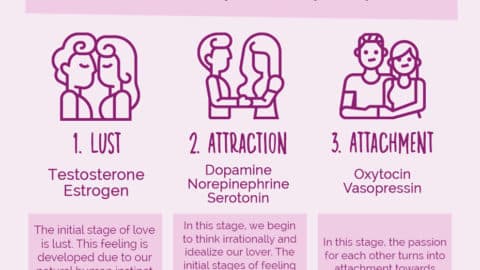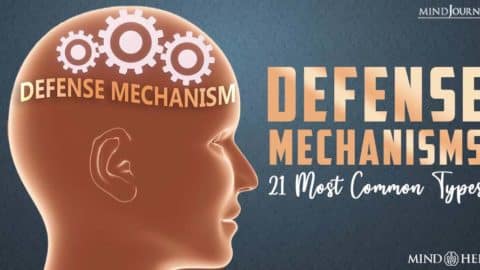- Criminology has always linked poor mental health and crime cases, especially serial killings.
- Recent studies show that mental health conversations triggered by popular depictions of true crime have enhanced mental health awareness.
True Crime Cases And Psychopathy
True crime has become a popular genre in recent years, with podcasts, documentaries, and TV shows dedicated to exploring real-life criminal cases. While these stories can be fascinating and thought-provoking, they often delve into the minds of the psychopaths perpetrating the crime.
Psychopathy is a personality disorder characterized by a lack of empathy and remorse, which can lead to violent and impulsive behavior. Many true crime cases involve individuals with psychopathic traits, making them prime examples of the dangers of this disorder.
Psychopathy is often misunderstood and sensationalized in the media, leading to confusion and fear among the public. True crime stories often focus negatively on psychopaths, perpetuating these misconceptions about individuals with this disorder being violent criminals. In some cases, the crime depictions slip into the shoes of the perpetrators and tell their mental health stories.
Such portrayals show that not all psychopaths are criminals, and not all criminals are psychopaths. While psychopathy can increase the risk of criminal behavior, it’s not a guarantee.
Depictions Of True Crime And Mental Health Conversations
Recent research has witnessed experts claiming that the popularity of the true crime genre has led to an increase in public conversations about mental health and trauma. Incorporation of the “mental health” angle in depictions of true crime cases means that mental health awareness can enter the mainstream media and be instrumental in:
- Making way for honest and effective mental health conversations
- Reducing the stigma around mental health
- Raising concerns about negative life experiences
- Normalizing the need to avail medical aid for mental wellness
- Driving home the message that community mental health care is a collective responsibility and is central to reducing crimes
Mental Health And Crime: A Justification?
Recent works depicting mental health and crime like Dahmer – Monster: The Jeffrey Dahmer Story (2022), Netflix’s Indian Predator series, and the series Conversations with a Killer have used mental illness to justify criminal behavior.
These sympathetically delve into the “back story” of the criminals concerned and review how their negative childhood experiences and traumatic life events influenced their psychopathy and criminal behavior. In some ways, these narratives justify criminal behavior with poor mental health and interpret personal crimes as the inevitable negative reactions to social injustice.
These depictions, hence, can rouse goodwill and empathy toward a criminal like a serial killer who claimed countless lives for no reason, as well as spark trends that worship or even applaud criminals with psychopathy.
Viewers may even take to the sugarcoated and whitewashing portrayals and develop a fascination and affection with the respective criminals, thereby disregarding the heavy damages inflicted by their evilness and criminality.
No wonder, these works depicting crime, despite their success, have come under fire for glorifying people with untreated mental illness and unhealthy behavioral patterns. Mental health experts have slammed the works for their regressive, unaware, and unrealistic portrayal of mental health.
For instance, American actor Penn Badgley, to say the least, isn’t fond of the most iconic character he has essayed so far—Joe Goldberg, the charming serial killer in Netflix’s critically acclaimed series “YOU”. In several interviews, Badgley has repeatedly cautioned his audience about adoring serial killers.
He has raised alarm at the latter’s unanimous justification and sympathy for Goldberg’s pattern of becoming obsessed with certain women, stalking them, winning them over, and killing anyone he believes has wronged his love interests.
In fact, in a recent interview, he called out the streaming giant and its audience for their insatiable thirst for infamous serial killers, fictional and non-fictional.
How True Crime Affects Mental Health
While true crime can be a fascinating genre, it’s essential to consider the potential impact it can have on mental health. The graphic and often disturbing content of true crime stories can be triggering for individuals with a history of trauma or mental illness.
For families of victims witnessing their personal tragedies play out in gory details or with fictionalized narratives, the effects of true crime on mental health can be seriously damaging. In such scenarios, the potential negative impact of true crime on mental health includes:
- Increased anxiety and fear
- Stress and trauma disorders
- Nightmares and sleep disturbances
- Desensitization to violence and trauma
- Intrusive thoughts and memories
- Depression and hopelessness
- Avoidance behavior
Viewing True Crime Shows As Mental Health Conversation-starters
Recognizing and acknowledging the role of mental health in true crime has its pros and cons. While the incorporated mental health conversations can be beneficial for destigmatizing mental illness, these can also be triggering for individuals with personal experiences of crime, trauma, or mental illness.
This is the reason why when discussing true crime and mental health, it’s essential to debate the idea that mental illness can justify criminal behavior. While some individuals with mental illnesses may commit crimes, it’s crucial to understand that mental illness alone is not a sufficient justification for criminal behavior.
People with mental illnesses are more likely to be victims of crime than perpetrators, and the majority of people with mental illnesses do not commit violent crimes. It is also important to recognize that mental illness and criminal behavior are separate issues that require separate solutions.
It also helps to approach mental health conversations linked to true crime with caution, sensitivity, and respect—acknowledging the potential impact they can have on others. Additionally, it’s important to recognize that not all discussions of true crime and mental health are created equal. Some media depictions of mental illness and trauma can perpetuate harmful stereotypes and stigmatize those who are struggling.
This Mental Health Awareness Month, therefore, let us pledge to seek out diverse perspectives to promote a more nuanced understanding of mental health and crime cases. By putting out accurate information about mental health and encouraging open-minded discussions, we can promote healthy communities for all.
Know More About –
Related Articles –
- How To Spot A Psychopath? 7 Non-Verbal Signs Of Psychopathy And Their Meanings
- Traits of a Narcissist and A Psychopath And What Makes Them Different From Each Other
- Manipulation 101: 15 Common Signs Of Manipulative People And How To Identify Them





